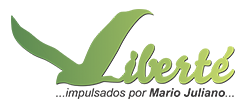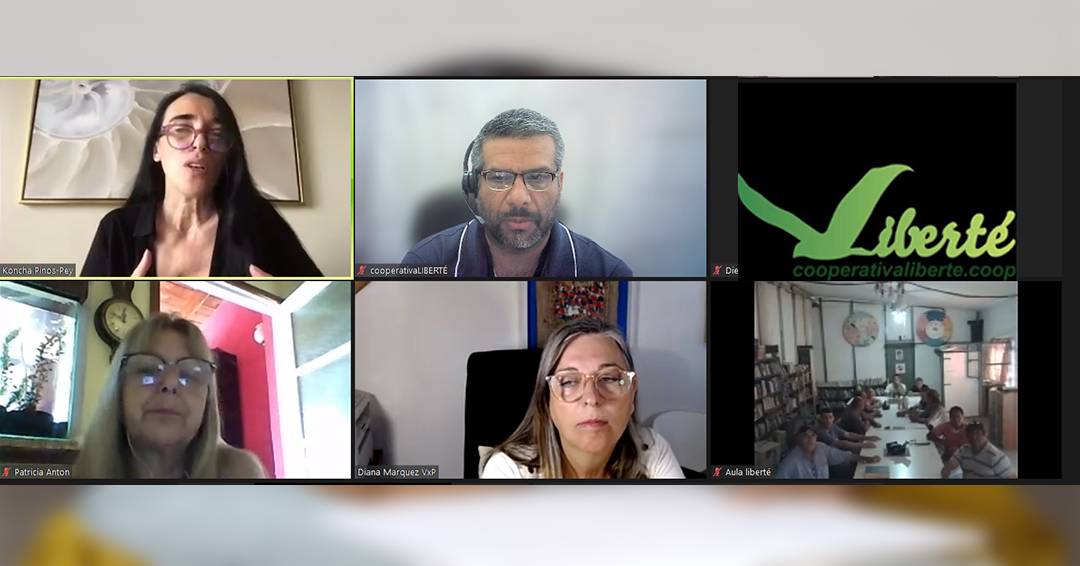A project that would land in Cooperativa Liberté.
The Wellbeing Planet is an entity based in the City of Knowledge in Panama, founded by Dr. Richard J. Davidson as scientific advisor and Dr. Koncha Pinos as director.
Its director was the one who last Saturday via the zoom platform contacted our entity in order to inform about the project already mentioned in the header and the proposal for Cooperativa Liberté.
The link is through Elena Espinal, who interviewed Xavier some time ago on her Reasons for Hope program.
Dr. Koncha Pinos has written numerous articles and books on politics, multiple intelligences, and the neuropsychology of diversity.
On the occasion of holding the tele-meeting, in which authorities from the Liberté Cooperative participated, Xavier Aguirreal, President, Carlos Tótaro, Secretary, Patricia Antón, substitute Syndicate, founding partners, and Diana Márquez, President of the Victims for Peace Association, referred to their intentions of contributing actions through a project where nature plays an important role in favor of those who today have been prevented from free movement from a prison confinement and suffer the consequences with mental disorders, conditions that impact their thinking, feelings, state of mind and behaviour.
During the teleconference, he said that the project is already being carried out in Panama with prisoners from that country, and he also mentioned that it is creating awareness about the living conditions of people who are in prison and thus alliances so that when people leave they have the possibility of going out to work in forests, with flowers, with medicinal plants.
The Panamanian government, he said, has given us more land so that they can have a project so that when they (the prisoners) leave, they can continue to grow trees and have a way of life.
In Spain we will start in the month of April, and she adds that she has already had conversations with the secretary of prisons stressing that this will be harder since they will be dealing with minors.
She recalls that the project is called Reforest Lives because human life that is separated from the different species is reforested and the intention is to rejoin what has been separated.
He explains that this is a super nice project and points out that for them to understand he indicates that it also gives people a lot of income and explains that planting a seed has a cost of 0.5 dollars, but if a Peca tree is allowed to grow, a Mahogany tree, between three and four years old, costs approximately one thousand dollars, we make this analogy so that people think that what they sow in a person has a value, if they want to translate it into money, if they want to translate it into values of society, adding that it is important that there is incoming, (entry) money for individuals and families so that they can live, and above all because we have a forest crisis in the world and in Argentina as well, we lack trees, we lack awareness, That is why it seemed to us that uniting these things is very fair and very typical of an act of freedom.
He mentioned that he would come to Argentina to Córdoba and it would be a fortnight soon and he pointed out that he has many students, he also gave as a possibility to stay for three or four more days and get to visit Liberté.
He talks about some agreements reached and offers to bring one of them closer to read the text in which the costs of tools to be used in the project and all kinds of supplies appear, to have the opportunity to discuss it.
He cites that his idea would be to provide the cooperative or whoever is part of the initiative, he speaks of providing training, everything related to seed costs, and everything that is utensils, maintaining that it is a capital to produce lives and indicates that land is needed since without it there will be no Freedom.
Bearing in mind that in prison the authorities, for security reasons, do not allow the trees to develop large, she indicates that in the precincts the species once developed are withdrawn and takes the opportunity to mention that in Argentina, in provinces such as Córdoba or even Tucumán has students who understand the subject and even many of them are Agricultural Engineers who understand the matter and would make their assessment of what species can be planted, and indicates that the first thing to take into account are details such as extension of land, PH , to know what can be planted, climate, you have to do a preliminary study.
She would also have to determine what plants, what flowers could be planted taking into account what is the greatest need in the area and she says that in her place of residence edible flowers have been planted that have gone very well for restaurants.
She says that when you work with diversification in the land, different effects are also produced in the brain, it depends on each plant which each one of them has
a different impact of structure, being close to trees is not the same as being close to plants that have a scent and the combination is what makes for a greater, deeper healing.
He said that when he talks about trauma, people who are deprived of liberty, suffer trauma, for whatever reason, even if they are in a hospital, who have COVID, anywhere, he cites that the deprivation of liberty in seventy-two hours it causes marks in the brain and if there is also a perpetuation of it, biases are produced in the areas of guilt, of shame and it is not so much what was done but how it is experienced that marks the brain.
He comments that together with Dr. Richard Davidson, who is an eminence in the field of emotions, they have worked hard on this project and that he is delighted with this project, also maintaining that he offers to give the classes that are needed.
He is, he goes on to say, an eminence in the realm of emotions in the brain and who has discovered the circuitry there.
He indicates that all this is about transforming that bias that has led people to live in a repetitively traumatic way, through personal work and through the help of plants, which in this sense act as a catalyst for healing and healing. integration.
We see, said Pinós Pey, a three or four year project, we never get into an adventure for a month, we don't like this, we consider that in three or four years people can learn and follow it on their own.
It is a process of transferring knowledge and de-monitoring, where we all learn, what we would do in the first year would be to do what has already been described and at the same time train prisoners who want to be trainers of another, what we are going to teach and so go on.
He also made reference to the fact that in Panama work was done proposing volunteers who are not from the families of those who are deprived of their liberty to go and plant the trees, to achieve more civil society, this could be more interesting, he said.
He expressed his desire to visit Liberté in the month of March and agreed to agree with us about it.
Lastly, he thanked Liberté for what he is doing.
Source: LIBERTÉ cooperative






